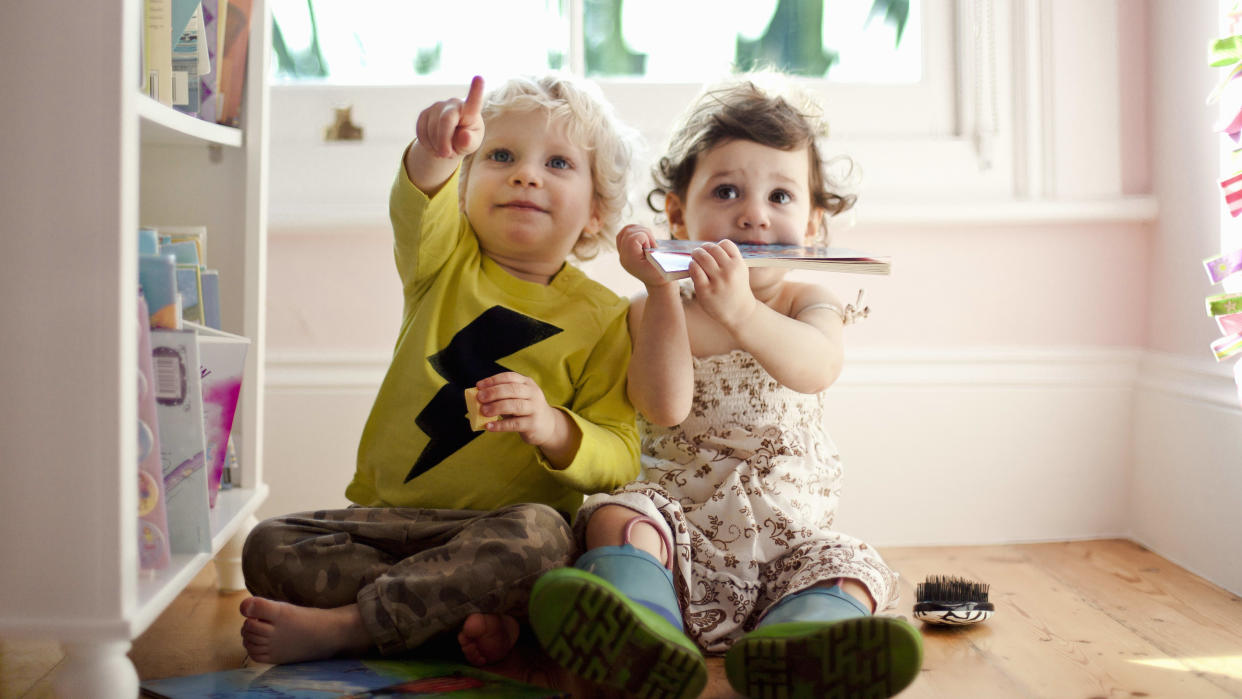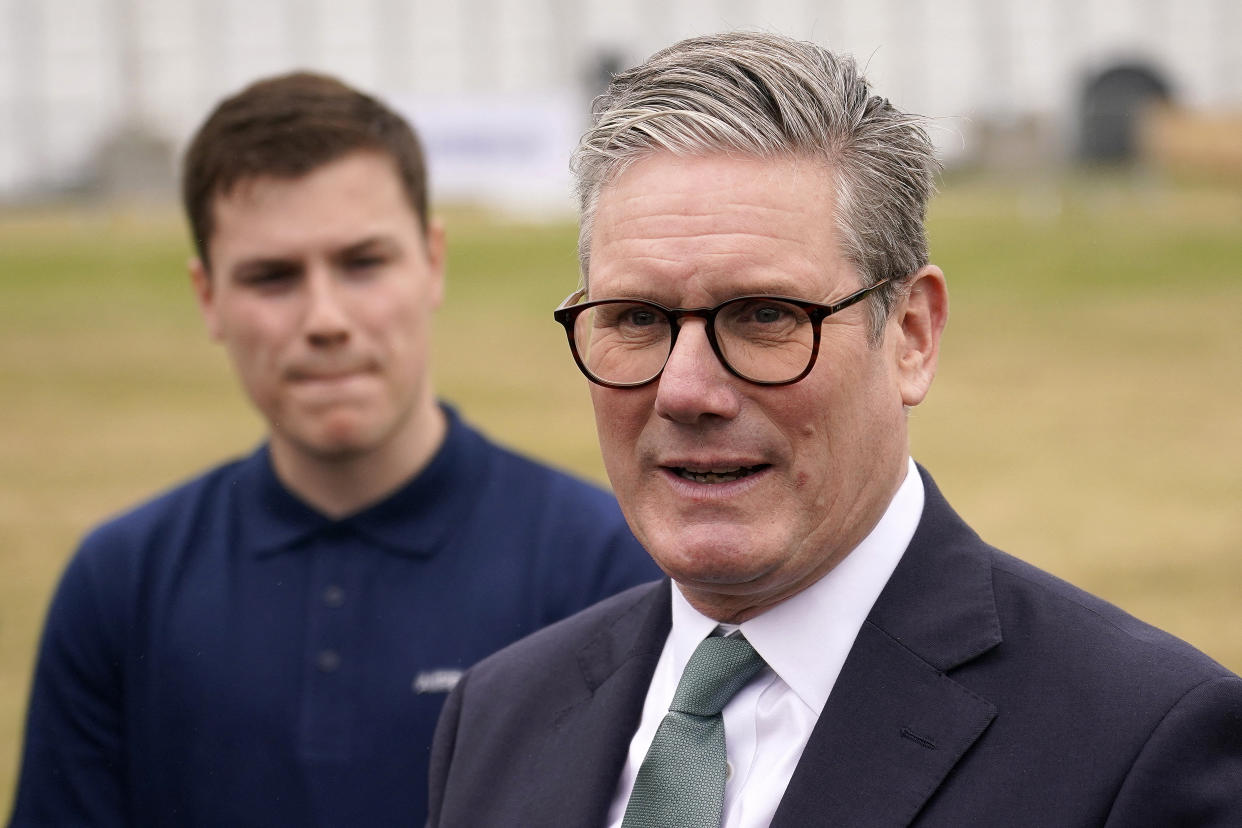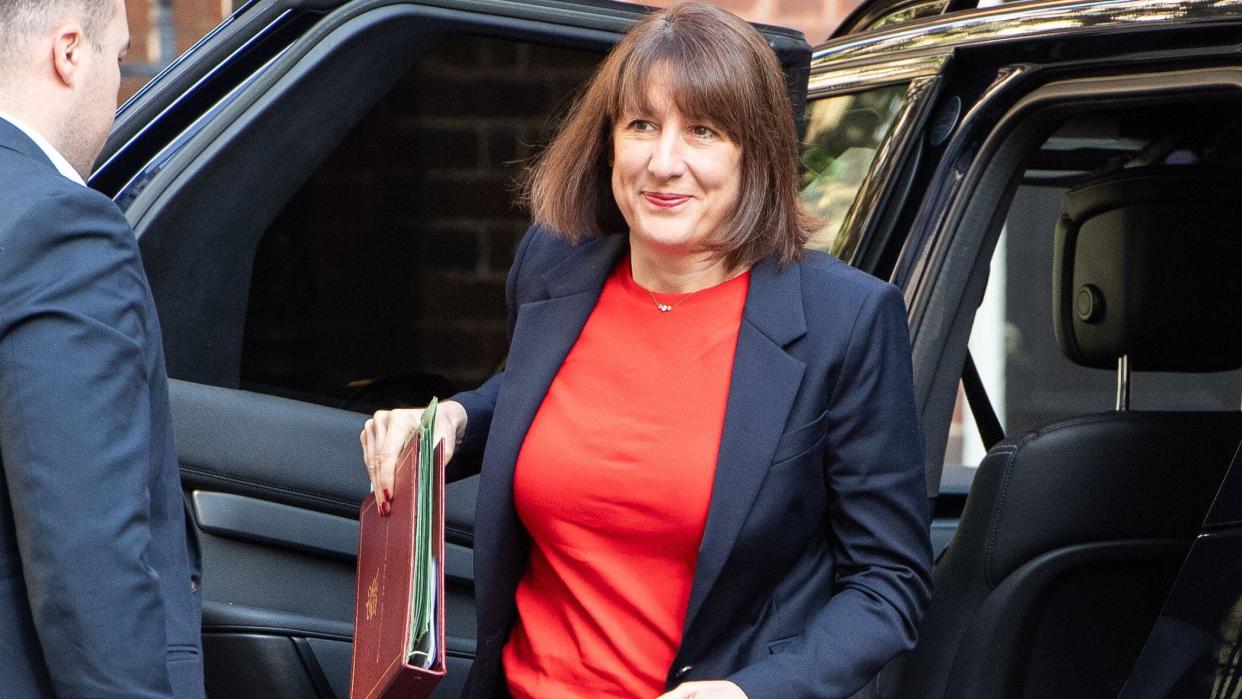The £3.4bn child benefit headache facing Keir Starmer

Sir Keir Starmer has seen off the first Labour rebellion of his premiership after a call to scrap the two child-benefit cap was comprehensively defeated in the House of Commons.
MPs rejected a King’s speech amendment on Tuesday, tabled in the name of SNP Westminster leader Stephen Flynn, urging the government to get rid of the policy by a comfortable majority of 260.
Seven Labour MPs backed the amendment and were promptly suspended by Starmer. And although the government won the vote, it is likely to come under further pressure on the policy in the run-up to the budget later this year.
Against the background of rising child poverty – with more than four million now living in low-income households – charities have also urged the PM to abolish the limit.
However, the Labour leadership has so far indicated that the state of the public finances means they cannot afford to axe the benefit limit unless economic growth is secured first. Starmer has claimed there is no "silver bullet" to eradicate child poverty, while the chancellor Rachel Reeves told the BBC on Sunday that she could not commit to an "unfunded" pledge.
But how much could lifting the two-child benefit cap cost and how it could be funded?
Skip to read
🧒 What is the two-child benefit cap? | 🪓 Why are Labour being urged to scrap it? |❓How much would it cost? | 💷 How could Labour pay for it? | 🕰️ What happens on Wednesday?
🧒 What is the two-child benefit cap?
Introduced in 2017 under the previous Conservative government, the two-child benefit cap prevents parents from claiming child tax credit or universal credit for a third child, with some exceptions.
At the time, the government said it wanted to ensure households on means-tested benefits would “face the same financial choices about having children as those supporting themselves solely through work.”
Exceptions were made for some claimants who did not choose to have a third or subsequent child, for example if a mother gave birth to twins.
Payments can also be made for some children in non-parental caring arrangements where they might otherwise be looked after by a local authority.
The policy only affects families where the youngest child was born after 5 April, 2017 and currently impacts around 550,000 households, according to the Institute for Fiscal Studies, and about 1.6 million children. When fully rolled out by 2035, the two-child limit will affect about one in 10 of all families with children and about one in five (2.8 million) children.

🪓 Why are Labour being urged to scrap it?
The pressure coming to bear on Starmer is the first real political test of his premiership and he has made it clear he will not tolerate rebellion.
The seven rebel Labour MPs to have lost the whip are shadow chancellor John McDonnell, ex-business secretary Rebecca Long-Bailey, Apsana Begum, Richard Burgon, Ian Byrne, Imran Hussain and Zarah Sultana have been suspended from the parliamentary party.
More than 40 Labour MPs recorded no vote, with some of those listed spotted in the chamber throughout the day while others will have had permission to miss the vote.
McDonnell had said before the vote: “I don’t like voting for other parties’ amendments, but I’m following Keir Starmer’s example as he said put country before party.”
I voted tonight to scrap the two-child limit, and I am disappointed to have had the whip suspended over this vote. But it was important for me to stand up for my constituents who are amongst the worst affected by a policy that every organisation fighting child poverty has urged…
— Imran Hussain (@Imran_HussainMP) July 23, 2024
In a post afterwards on X, formerly Twitter, Sultana said: “I have been informed by the Chief Whip & the Labour Party leadership that the whip has been withdrawn from me for voting to scrap the two-child benefit cap, which would lift 330,000 children out of poverty."
Dan Paskins, executive director of policy, advocacy and campaigns at Save the Children UK, said: “With 1.6 million children impacted by this cruel and unfair policy, the two-child limit punishes children just for having siblings.
"Scrapping it could immediately lift half a million children out of poverty and would be the first major step to deliver on the aims of the child poverty taskforce.”
The latest official UK figures, published earlier this year, showed an estimated 4.33 million children in households in relative low income after housing costs in the year to March 2023 – a record high.
The charities said poverty is “a critical risk factor” which has “surged alongside this rise in mental ill health” in recent years.

❓ How much would that cost?
According to the Institute for Fiscal Studies, it would cost around £3.4bn to scrap the two-child benefit cap.
To give a sense of the scale, the IFS says this would amount to 3% of the government's total budget for working age benefits.
The government appears to agree with these figures, with Reeves telling the BBC's Sunday with Laura Kuenssberg programme: “It costs more than £3bn a year. We were really clear during the election that we were not going to make spending commitments without being able to say where the money was going to come from."
💷 How could Labour pay for it?
Given that the Labour Party ruled out early on in the election campaign any changes to income tax, it would have to find other means to fund this change.
"There isn't very much they can do on the tax side of things to raise the money", IFS associate director Tom Waters told Yahoo News. Instead, they could raise stamp duty, which Waters said would be a "bad idea", or potentially inheritance tax or capital gains tax.
"All of these taxes are relatively small, so raising significant amounts of money through them is more challenging than through the income tax system," he added. "The other option would be to cut spending elsewhere."
That would be at odds with Starmer's promises throughout the election campaign in which he pledged not to raise income tax, national insurance or VAT for five years if they won the election. The party also has a self-imposed rule not to borrow to fund day-to-day spending.
This would leave few options other than spending cuts, and while Reeves has said she doesn't want to make them, she has hinted that they may be carried out.
So while Starmer may not need to address the issue yet, it's a £3.4bn problem that is unlikely to completely go away.
🕰️ What happens on Wednesday?
Starmer faces the prospect of an uncomfortable Commons grilling in his first prime minister’s questions in charge of the government. He will face off against Tory leader Rishi Sunak at noon
Children's charities also released a report on Wednesday warning that young people are being failed in “dual crises of poverty and mental health".
The report from the Centre for Mental Health, Save the Children UK and the Children and Young People’s Mental Health Coalition has recommended the government should scrap both the two-child limit and the benefit cap “to ensure all children receive their benefit entitlements”.


